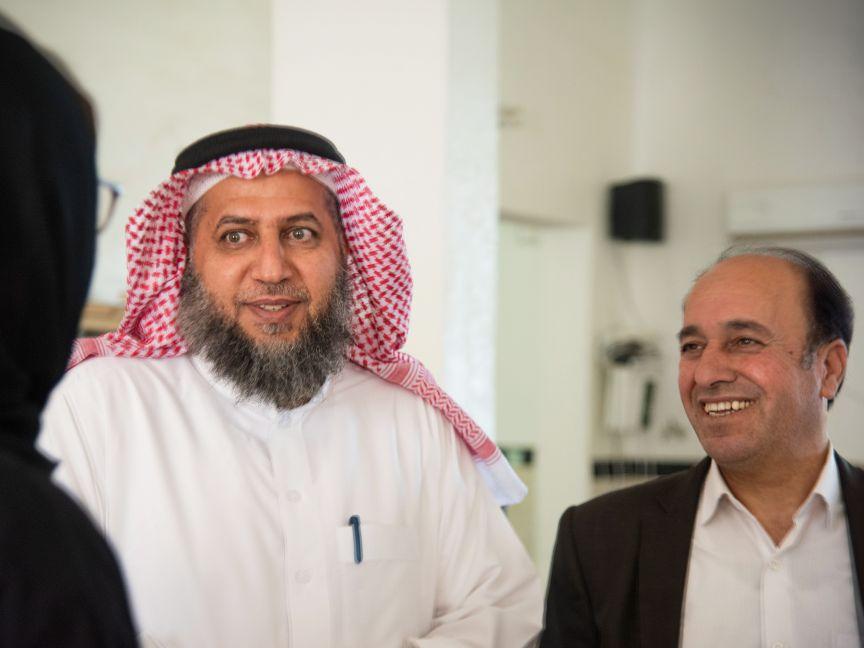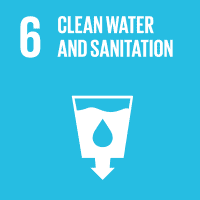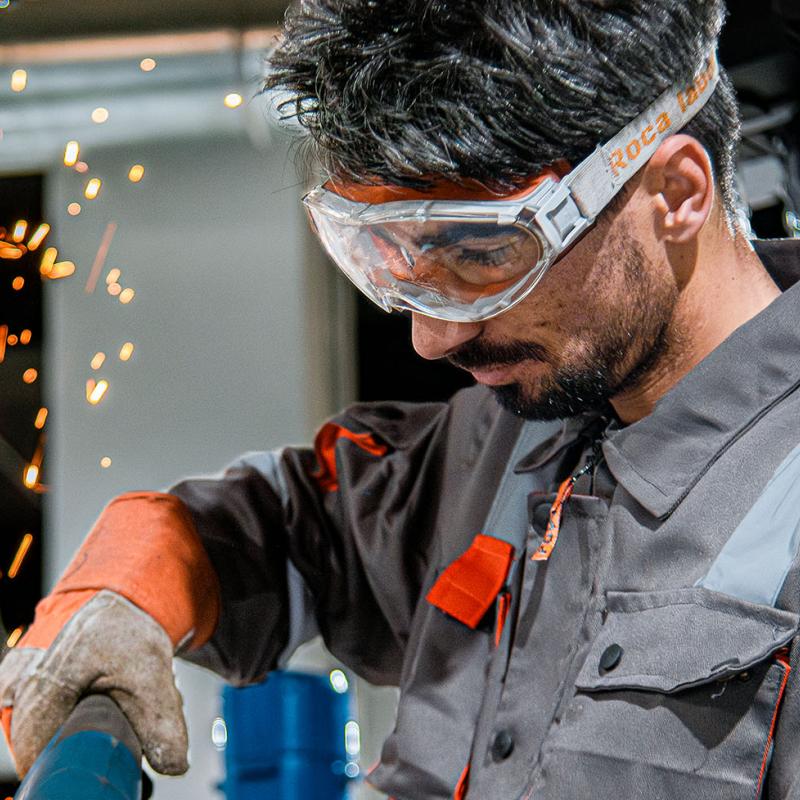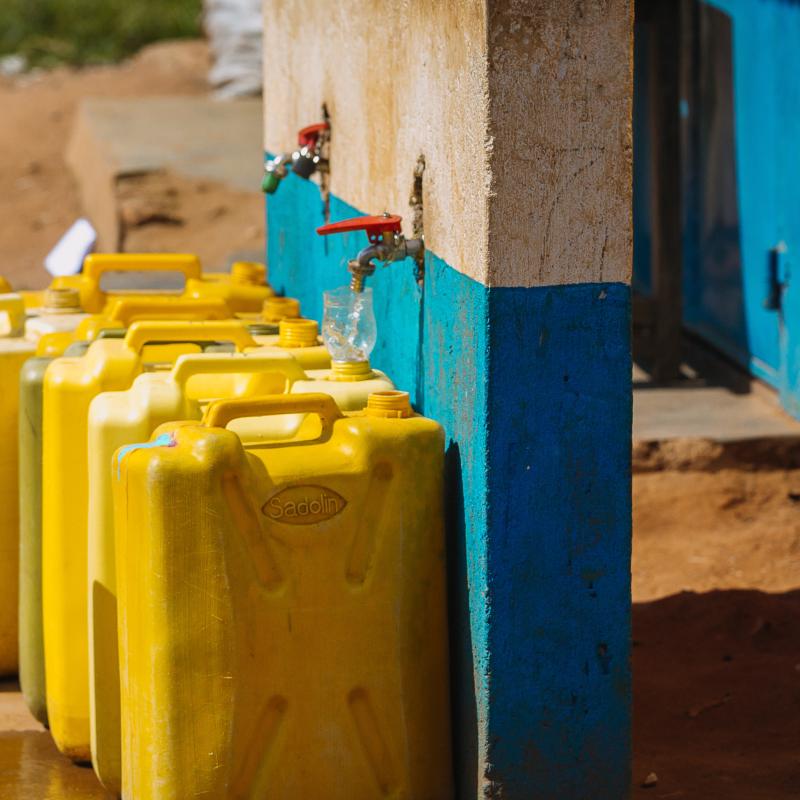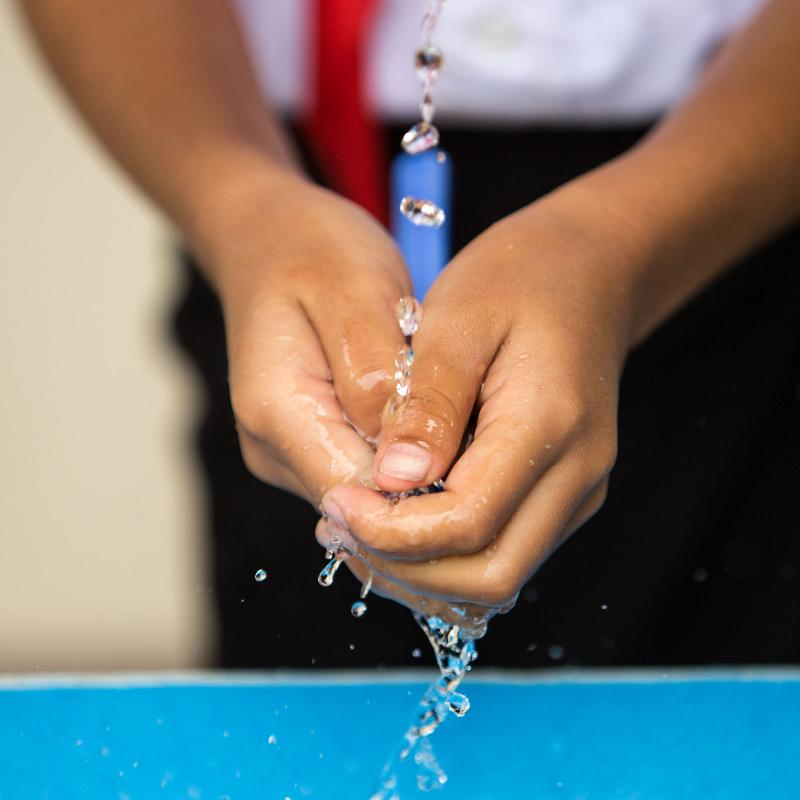After hundreds of thousands of people fled Syria, a project was launched to improve water security: Supporting Participatory Resource Management to Stabilise the Situation in Host Communities. On behalf of the German Federal Ministry for Economic Cooperation and Development (BMZ), GIZ worked with Jordanian partners to advance water security in 14 host communities, while at the same time improving social cohesion in the villages.
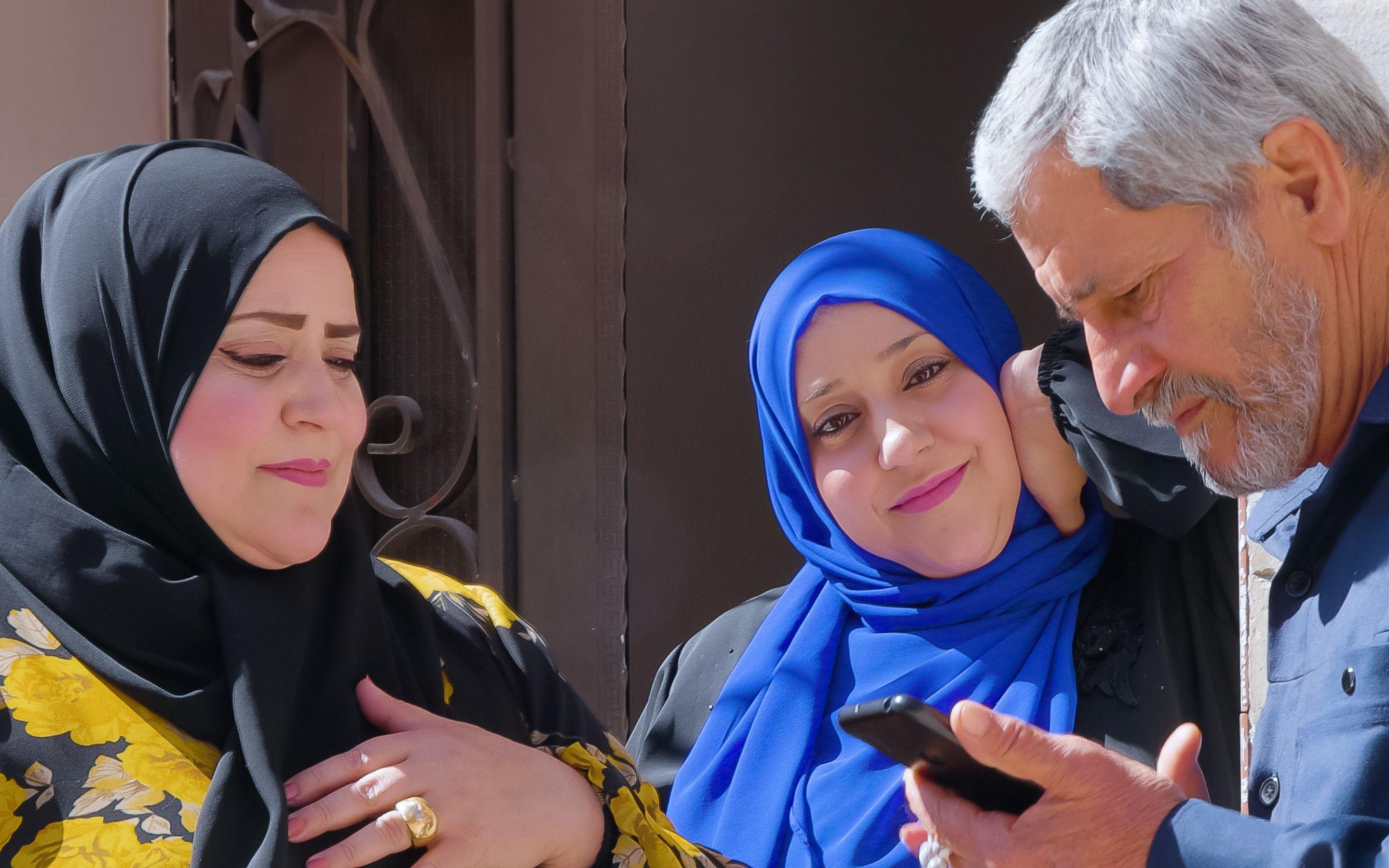
Source of togetherness
What can be done when a water-poor country has to provide for more and more people? A trip through northern Jordan in villages that have taken in large numbers of refugees.
Kafa Al-Fayyad is tireless when it comes to improving the quality of life in her home country. ‘Our villages lack many things, so it is all the more important to make something happen here,’ the lively Jordanian says to the group. She is a municipal councillor and has gathered active citizens from the West Irbid region in her living room to report on the water supply. She knows that everyone has to be involved to get things done: together, not against each other.
Jordan is one of the world’s most arid countries. This was already a challenge for the municipalities when ‘only’ Jordanian households had to be supplied. Then, in 2011, hundreds of thousands of people fled Syria to its southern neighbour after the Assad regime brutally crushed the reform movement. And most of them stayed. All these years later, in September 2023, more than 653,000 Syrian refugees were officially registered in Jordan, about six per cent of the total population. This is a huge challenge for the kingdom, considered one of the few stable countries in the Middle East.
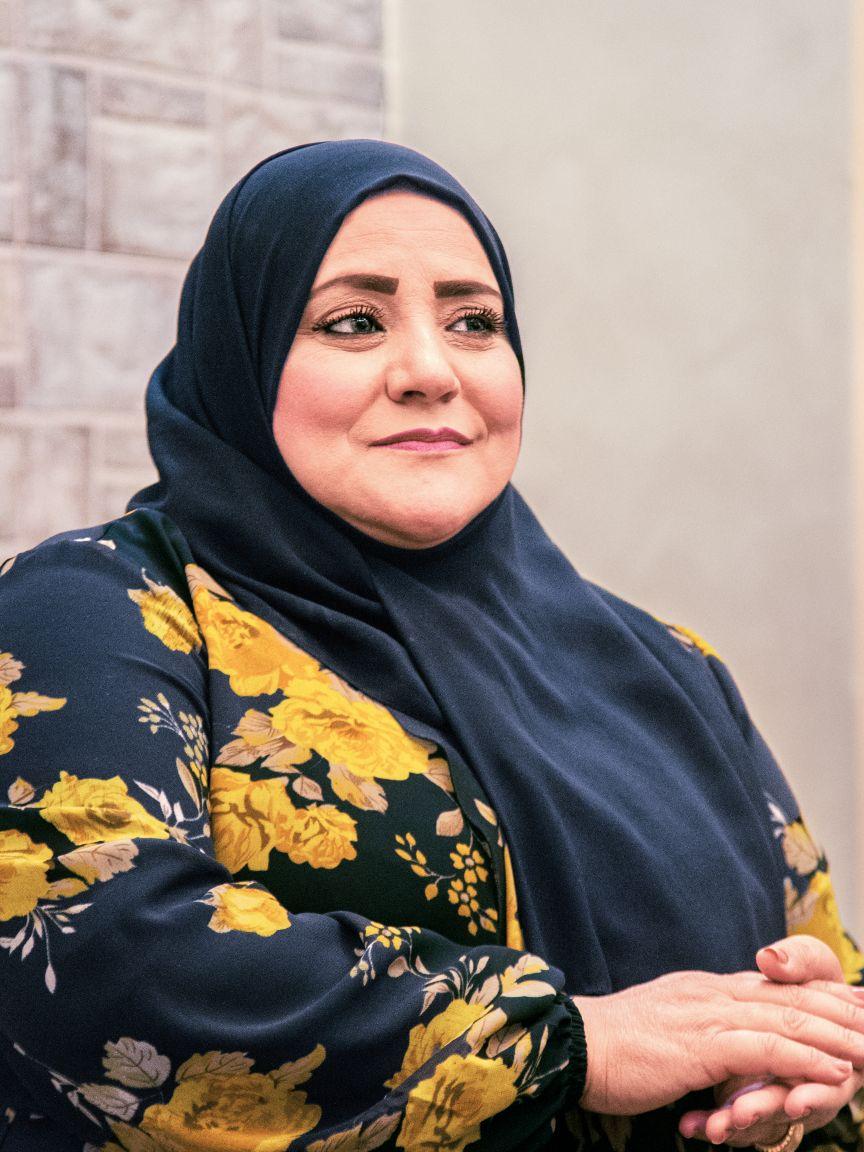
Kafa Al-Fayyad, community activist
Over 80 per cent of the Syrian refugees live outside the official refugee camps. The host communities had to provide the necessary infrastructure for the refugees, and still do. These are places like Bait Yafa, with its roughly 14,000 inhabitants. It initially took in more than 150 Syrian families – around 4,600 people. Over a third of them still live in Bait Yafa, which is located west of Jordan’s second largest city, Irbid.
Mohammed Ayesh Al-Zawbani is one of these people. He is sitting in Kafa Al-Fayyad’s living room, recounting how he came to the village in 2012 because relatives of his were already living there. It is only 35 kilometres to the Syrian border as the crow flies. So near and yet so far away.
Al-Zawbani abandoned his house and his flourishing transport business in Syria and fled with his nine sons and daughters. He thought he would only stay for a short time, but things turned out differently. In the meantime, the 69-year-old has become the ‘mukhtar’, the honorary head, of the Syrians in Bait Yafa. ‘That’s also how I became part of the dialogue committee,’ explains Al-Zawbani, ‘where I can present the concerns of my compatriots.’
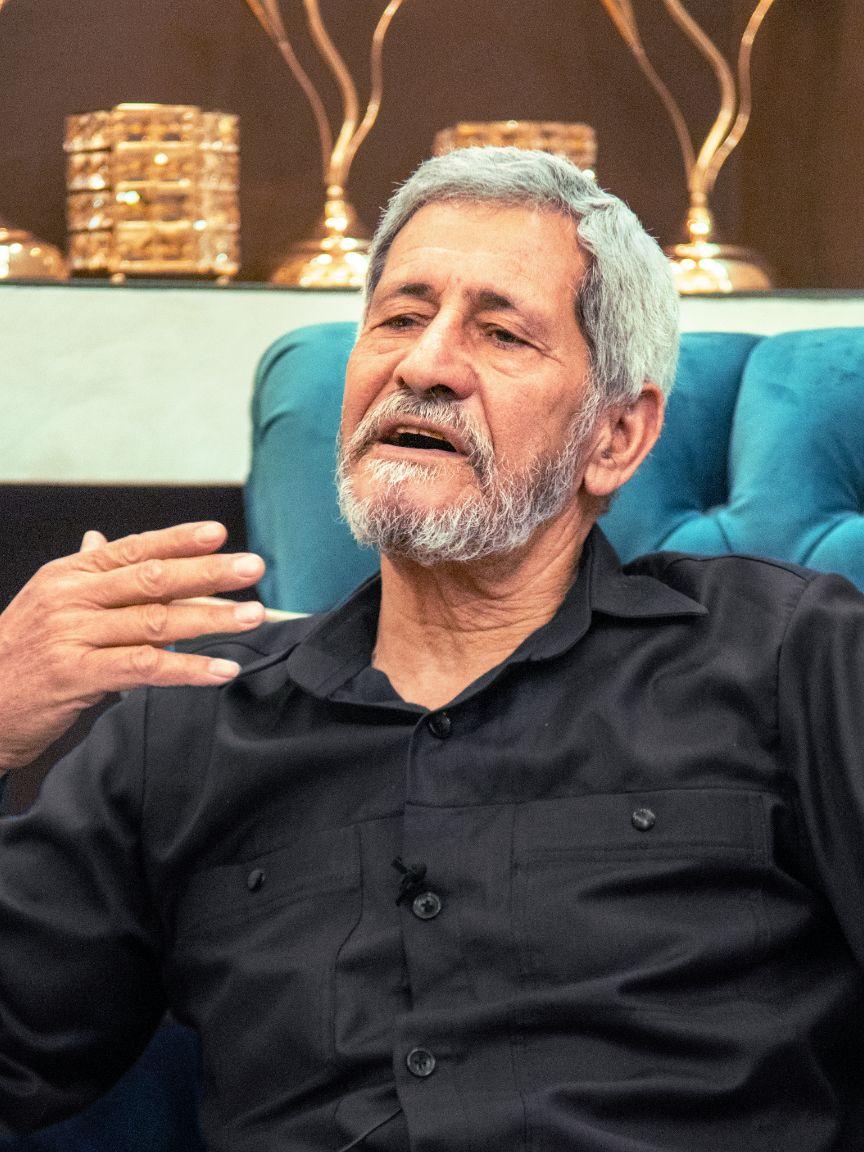
Mohammed Ayesh Al-Zawbani, Syrian refugee in Jordan
Involving everyone in the water dialogue
With support from the Deutsche Gesellschaft für Internationale Zusammenarbeit (GIZ) GmbH, dialogue groups have been established in 14 municipalities. Representatives of all social groups are involved, working to improve the water supply: women, men, Syrian refugees, locals and people with disabilities. Imams were included too, because especially in rural areas the word of the religious leaders carries weight, and they were able to ensure broad acceptance in the villages.
The regular meetings in the municipalities have helped to defuse conflicts between the local population and the refugees. ‘When we lived in Syria, water was not scarce. There was enough and it cost almost nothing. That’s why our women also used a lot of water in Jordan in the beginning,’ Al-Zawbani recalls. ‘Around 200 litres a day, that didn’t go down well.’ In the meantime, everyone knows that you have to save water in Jordan, because it is only pumped into the tanks on the roofs once a week and then has to last until the next delivery.
In Ham, a village neighbouring Bait Yafa, the water always comes on Mondays. In the past, the old pipes were so rusty and dilapidated that they first had to be flushed out for two to three hours before the water was clean enough. An enormous waste. Now the entire pipe system has been renewed and, where necessary, new water tanks have been installed. As a result, water no longer seeps away into the ground unused.
The improved infrastructure and the dialogue groups have not only moved the village communities forward, but communication with the state water providers has also got better: ‘There used to be tensions between the local communities and the providers – we didn’t feel taken seriously,’ explains community activist Al-Fayyad.
Through the regular round table meetings, she says, water managers have realised how important it is to work with local groups to stop wasting water. This is because local people notice immediately if there is a leak somewhere. ‘Now all it takes is a call to the emergency number and a team will be on site within one-and-a-half hours,’ says Al-Fayyad. ‘So everyone feels more responsible for the precious water.’
